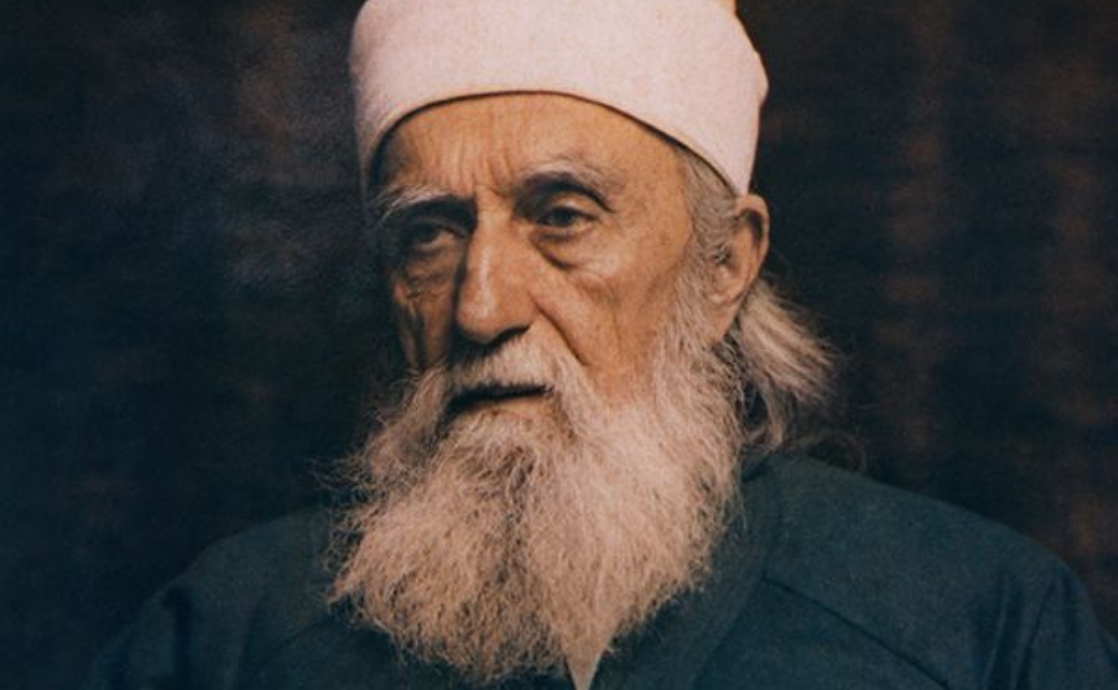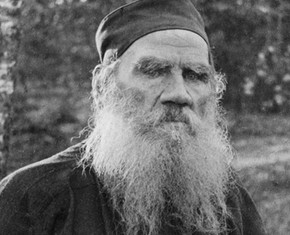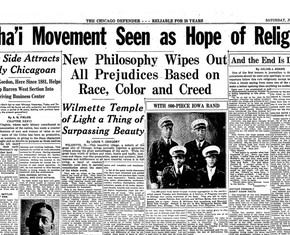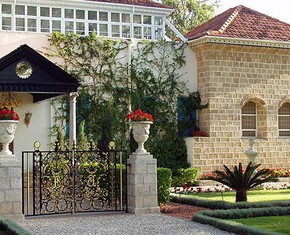The views expressed in our content reflect individual perspectives and do not represent the authoritative views of the Baha'i Faith.
In this series of essays, we’ll look not only at the facts of Abdu’l-Baha’s astounding life, but more importantly at the profound spiritual impact his example has had, and continues to have, on humanity.
First, to briefly summarize the biographical facts of his life in this second installment of our series, let’s scan a short outline of Abdu’l-Baha’s time on this Earth.
Abdu’l-Baha was born in Tehran, Persia on May 23, 1844, to a Persian nobleman named Mirza Husayn Ali – later known by his title Baha’u’llah, which means “the glory of God” – and his wife Asiyih Khanum. They named their eldest son Abbas, which means “lion” in Arabic, after his paternal grandfather Mirza Abbas.
RELATED: The Wife of the Prophet in the 45th Psalm
Although his parents were relatively young when he was born – Baha’u’llah was 26 and his wife, later known by the title Navvab, which means “grace” or “highness,” was 24 – by all accounts Abdu’l-Baha enjoyed a carefree and prosperous childhood. His grandfather and namesake, the descendent of noblemen and government officials and himself an appointee of the Shah, owned multiple homes in Tehran and in the Persian provinces, including a family compound in the province of Nur, near the Caspian Sea in the northern part of the country. Five years before Abdu’l-Baha was born, his grandfather passed away and left his remaining properties to Baha’u’llah.
After his father’s passing, Baha’u’llah was offered a prominent position in the government, but declined. Instead, Baha’u’llah and Navvab voluntarily set aside a portion of their property to be used as a free hospital ward for poor women and children, and Baha’u’llah hired physicians to treat them. This was unheard of – normally, Persian nobility desired very little contact with the poorest in their society. Before long, Baha’u’llah and his wife became well-known nationally for their charitable humanitarian work, and were soon called “The Father of the Poor” and “The Mother of Consolation.”
Abdu’l-Baha grew up, with his sister Bahiyyih and his brother Mihdi, in this atmosphere of altruism and charitable endeavor. In The Hidden Words, Baha’u’llah wrote:
Tell the rich of the midnight sighing of the poor, lest heedlessness lead them into the path of destruction, and deprive them of the Tree of Wealth. To give and to be generous are attributes of Mine; well is it with him that adorneth himself with My virtues.
In the tradition of the nobility in Persia, Abdu’l-Baha was tutored at home, and only received schooling for one year, when he was seven. Despite this lack of formal education, he became a renowned author, a sought-after public speaker, and one of the world’s leading intellectual forces during his adult years.
When Abdu’l-Baha was nine years old, however, everything in his young life changed.
A Sudden Descent into Imprisonment and Poverty
Baha’u’llah and his wife Navvab both became Babis – followers of the Bab – shortly after the Bab declared his mission in 1844, and Baha’u’llah eagerly helped spread the new Faith in Nur and in Tehran. The Bab’s teachings – that he had come to prepare the way for a new messenger of God who would bring peace and justice to the world – drew an enthusiastic response, and quickly became a thriving, rapidly expanding movement in Persia. Tens of thousands joined the Bab’s cause. This upset and threatened the reigning governmental and ecclesiastical authorities, who feared losing their power and influence. Accordingly, Baha’u’llah – seen as one of the most prominent figures in the Babi cause – was punished by the Muslim clerical class and the government, suffering from temporary jailing and the torture of the bastinado, the whipping of the soles of the feet. During that time, the government waged a campaign of genocide, repression, and terror, torturing, imprisoning, and killing thousands of Babis.
Then, after the Bab was executed by a government firing squad in 1850, Baha’u’llah was jailed once more in 1852. This time, he was imprisoned in Tehran’s infamous Black Pit, where every day one of the Babis imprisoned with him was taken out and killed. Abdu’l-Baha, his mother Navvab, and his little sister and brother were defenseless, and angry anti-Babi mobs stormed their home, ransacking and looting it and taking all of their possessions. Immediately homeless, impoverished, and in danger, they fled to a relative’s house.

Formerly one of the most privileged and prominent families in the country, they had now become suddenly homeless and destitute. Navvab sold her jewelry for food, until Baha’u’llah was released from the Black Pit four months later and exiled to Baghdad. From that day onward Abdu’l-Baha’s father, mother, and siblings would suffer from repeated banishment, exile, and imprisonment. Later in his life, Abdu’l-Baha told the story of that exile to a British journalist:
At nine years of age, I accompanied my father, Baha’u’llah, in his journey of exile to Baghdad, seventy of his disciples going with us. This decree of exile, after persistent persecution, was intended to effectively stamp out of Persia what the authorities considered a dangerous religion. Baha’u’llah, with his family and followers, was banished, and travelled from one place to another. When I was about twenty-five years old, we were moved from Constantinople to Adrianople, and from there went with a guard of soldiers to the fortressed city of Akka, where we were imprisoned and closely guarded.
RELATED: Abdu’l-Baha: From Prisoner to Honored Guest

For 40 years, from 1868 to 1908, Abdu’l-Baha was a prisoner of the Ottoman and Turkish governments, for committing no crime and simply being a Baha’i. When he was finally released at the age of 64, he became the world’s leading exponent of altruism, love, peace, justice, and forgiveness. He travelled throughout Europe, the Middle East, and North America, expounding and exemplifying Baha’u’llah’s teachings of unity and global governance. He spoke to huge crowds, who clamored for his spiritual wisdom and insight. High officials in governments, influential thinkers, writers, and world leaders sought his counsel. He became, in the words of the New York Times, the renowned teacher of “a doctrine against which no autocratic government could stand … the love of God and the brotherhood of man”.
How did this happen? How could a mere prisoner, a man with little formal education, poor for his entire adult life, manage to have such a profound and lasting impact on the world? In the next essay in this series, we’ll delve into that question.
Next: The True Example of How to Live a Spiritual Life
















Comments
Sign in or create an account
Continue with Googleor